Do you feel like your cat's fur has become greasy and dull recently? However, when it comes to grooming, our cats are experts; they know very well how to take care of their coat. Don't panic, there are several solutions to remedy greasy and dull fur in your little companion. We will also focus in particular on the importance of choosing a quality diet.
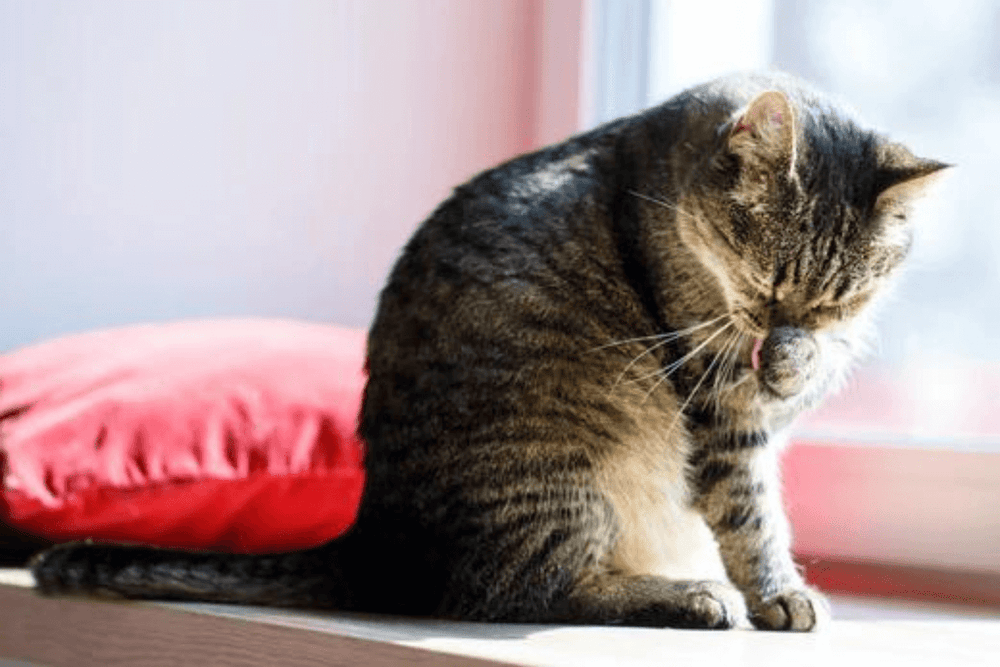
Why does my cat have greasy fur?
Aside from Persians, who naturally have a fat tail base and ears, a greasy coat is not normal in our cats, who naturally maintain their coats spontaneously. Generally speaking, healthy, well-fed and well-groomed cats have beautiful, shiny coats.
There are many reasons why your cat's fur may become greasy and dull. You are encouraged to seek advice from your veterinarian to determine the cause. It could be a disease or a disruption in the skin's ecosystem, especially if it gives off a strong odor.
Nutritional deficiencies
If your cat has oily fur, it is likely that its diet does not cover its nutritional needs. An unsuitable diet is synonymous with deficiencies in our little companions, and therefore dull and oily fur. Many nutrients are essential for the quality of the skin and fur in our cats. Moreover, when the skin and fur suffer, it is often your cat's entire body that suffers.
Parasites
External parasites such as fleas and mites, and endoparasites such as intestinal worms, cause infections and skin lesions. They also contribute to the deterioration of the condition of your cat's coat. We will therefore be particularly attentive to excessive licking and scratching, as well as any scabs hidden by the coat of our little companions.
Old age
Older cats suffering from osteoarthritis may have difficulty grooming themselves properly. We particularly recommend giving them a helping hand by brushing them daily and providing them with a suitable diet so that they maintain a soft and silky coat.
To learn more, don't hesitate to consult our article on feeding older cats. We share with you lots of advice for taking care of your little senior.
A health problem
If your little companion suddenly stops grooming himself, if his behavior changes and if he seems unwell, we can only recommend that you consult your veterinarian so that he can examine him.
Obesity can be responsible for greasy and dull hair in our cats, who have difficulty cleaning certain parts of their coat. Allergies also cause changes in the appearance of the skin and coat.
My cat has greasy fur: what can I do about it?
Choosing a quality diet
To help your cat regain its shiny and silky coat, it might be a good idea to review the contents of its bowl!
Instead, he will be offered a quality diet, rich in proteins and minerals, which will cover his nutritional needs.
For a beautiful coat, all the essential nutrients count: proteins (especially if your cat has long hair), sulfur amino acids (methionine and cysteine), essential omega 6 and omega 3 fatty acids (linolenic acid), minerals , vitamins A, E and B vitamins (especially biotin (B9), trace elements (copper, zinc, manganese, selenium, iodine) and water, for good hydration.
To find out more, don't hesitate to consult our dedicated article. We share all our knowledge with you so that your cat has a beautiful coat.
At Ziggy, ourcat kibble and cat pâté contain the right nutrients so that your cat no longer has greasy fur and has soft, silky fur all year round.
A quality diet may seem expensive, but it helps keep your cat healthy and thus limits medical costs related to various pathologies caused by poor diet.
If you decide to change your cat's diet, we advise you to carry out a dietary transition period so as not to shock him.
Regular brushing
Regular brushing is a valuable aid to your cat's own licking.
When they accumulate, dead hairs become bothersome. In particular, they can promote disruptions in your cat's skin ecosystem.
We therefore advise you to brush your cat to help it remove dead hair , avoid knots and polish its coat . Brushing should be perceived by your cat as a moment of relaxation, which is why we recommend getting it used to it from a young age.
Brushing should be preferred over bathing. Bathing is only useful for cats if the fur is soiled by a smelly or toxic product. Most cats are afraid of water, so giving them a bath will not be an easy task and can be experienced as a stressful event. Unless of course your cat has been accustomed to contact with water and baths when it was still a kitten.
Don't forget to deworm your little companion
Even the most homebody cats, who never leave the living room, cannot escape parasites !
This is why, 2 to 4 times a year, depending on its lifestyle, it is recommended to deworm your cat.
Deworming your cat is a medical procedure that can be carried out by the veterinarian or by yourself on medical prescription.
For cats with access to the outdoors, a preventative antiparasitic treatment is often recommended. Anti-flea and anti-tick pipettes are easily applied to your little companion's neck.
In either case, it is helpful to seek advice from your veterinarian.
A nice hair with Ziggy
Diet plays a fundamental role in the health of our cats' fur. And at Ziggy, we have chosen to be generous with all the nutrients our whiskers need.
If you would like your cat to taste our delicious recipes, we offer discovery boxes .
FAQ - Poil gras chez le chat
Pourquoi mon chat a le poil gras ?
Un poil gras peut être causé par un excès de sébum, souvent lié à une affection cutanée chez le chat, à un manque de toilettage (surtout chez les chats âgés, en surpoids ou malades), ou à une alimentation déséquilibrée.
Est-ce grave si mon chat a les poils gras ?
Ce n’est pas une urgence vétérinaire, mais cela peut être le signe d’un déséquilibre à ne pas négliger. Pour identifier la cause, une visite chez le vétérinaire est conseillée.
Que faire si mon chat a le poil gras ?
Consultez votre vétérinaire pour écarter une maladie sous-jacente. Si aucune pathologie détectée, n'hésitez pas à changer l'alimentation de votre chat, pour une alimentation plus qualitative, qui lui apportera tous les nutriments nécessaires à la santé et à la beauté de son poils.
Faut-il laver un chat qui a le poil gras ?
Nos chats ne sont pas comme nous. S'il a le poil gras, ne le lavez pas avec un shampooing, même spécifiquement conçu pour les chats. En revanche, vous pouvez brosser votre chat pour l'aider à éliminer les poils morts et lustrer son pelage.


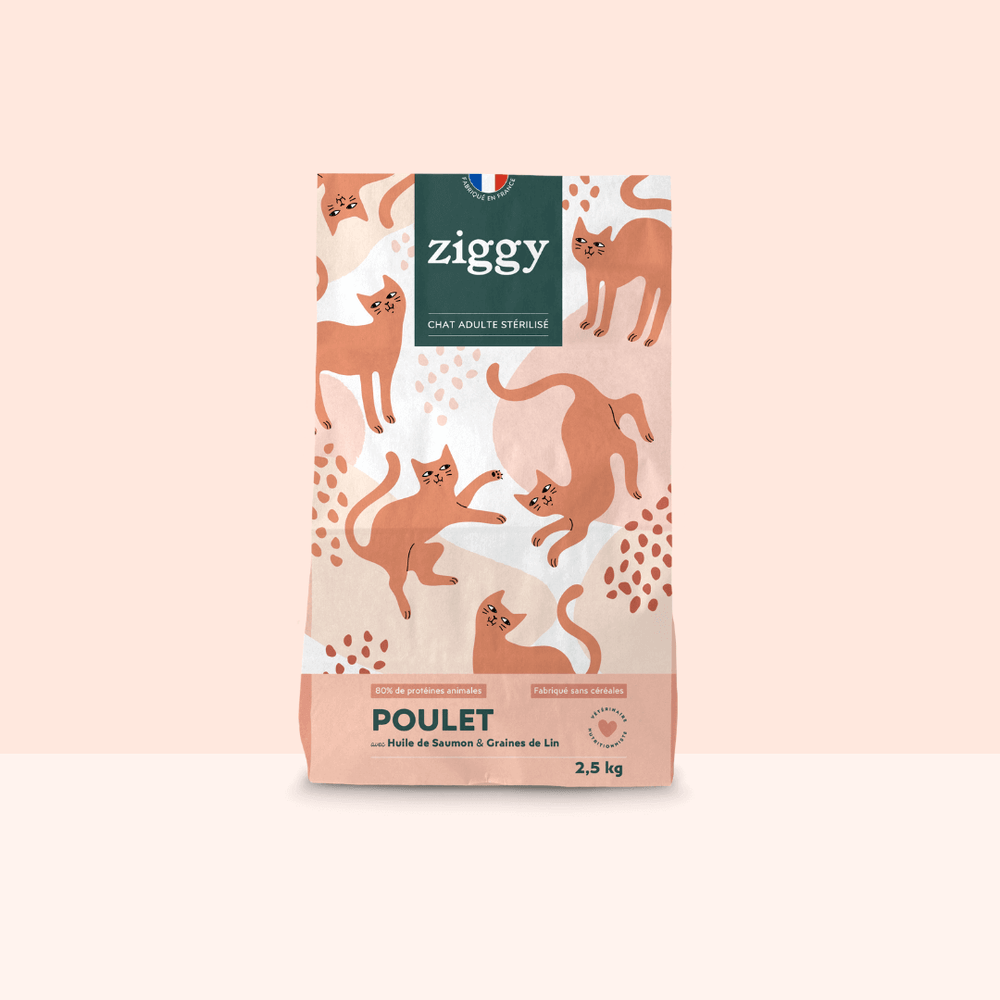
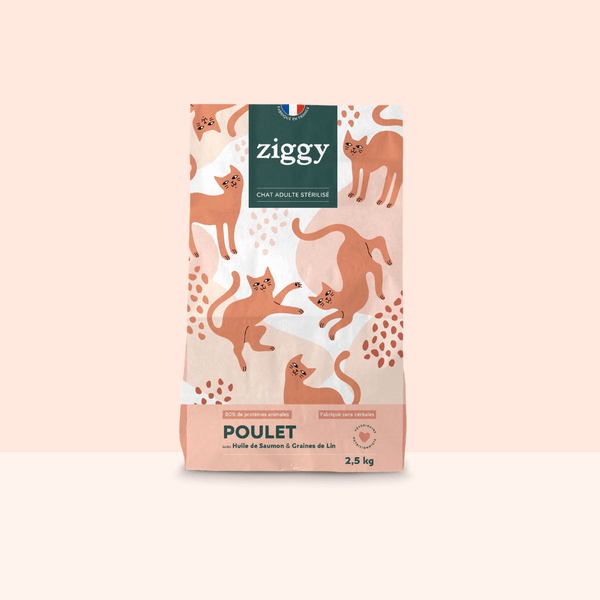

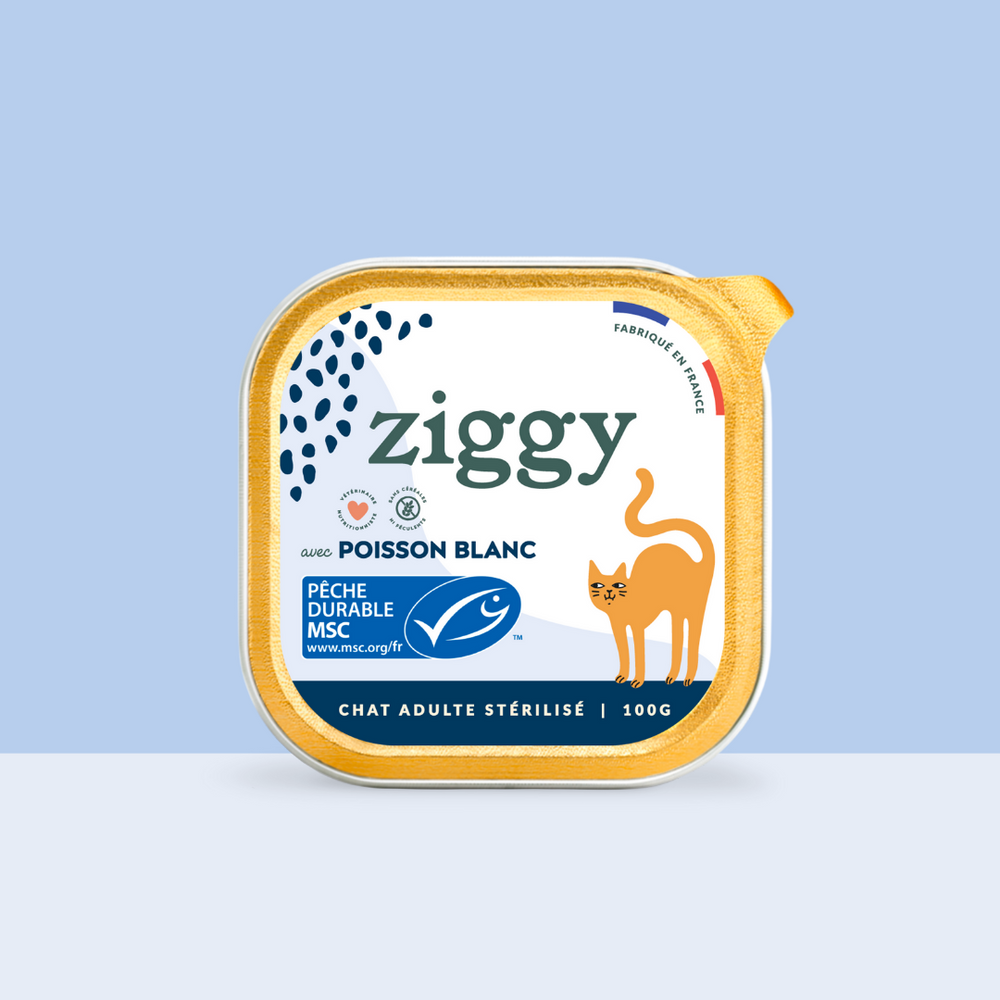
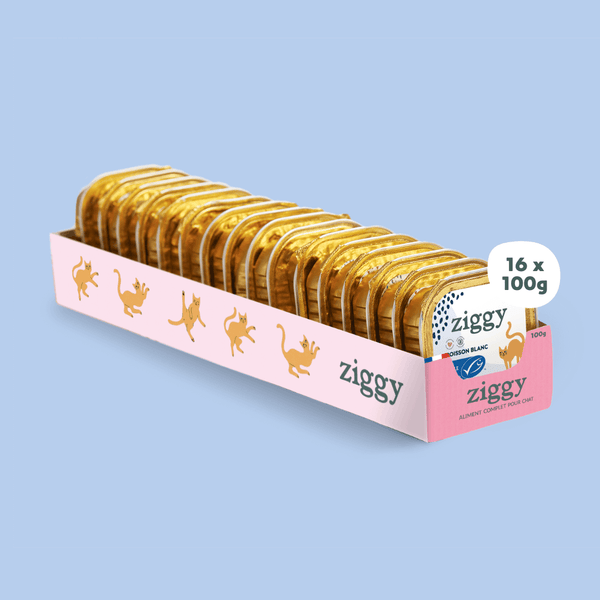




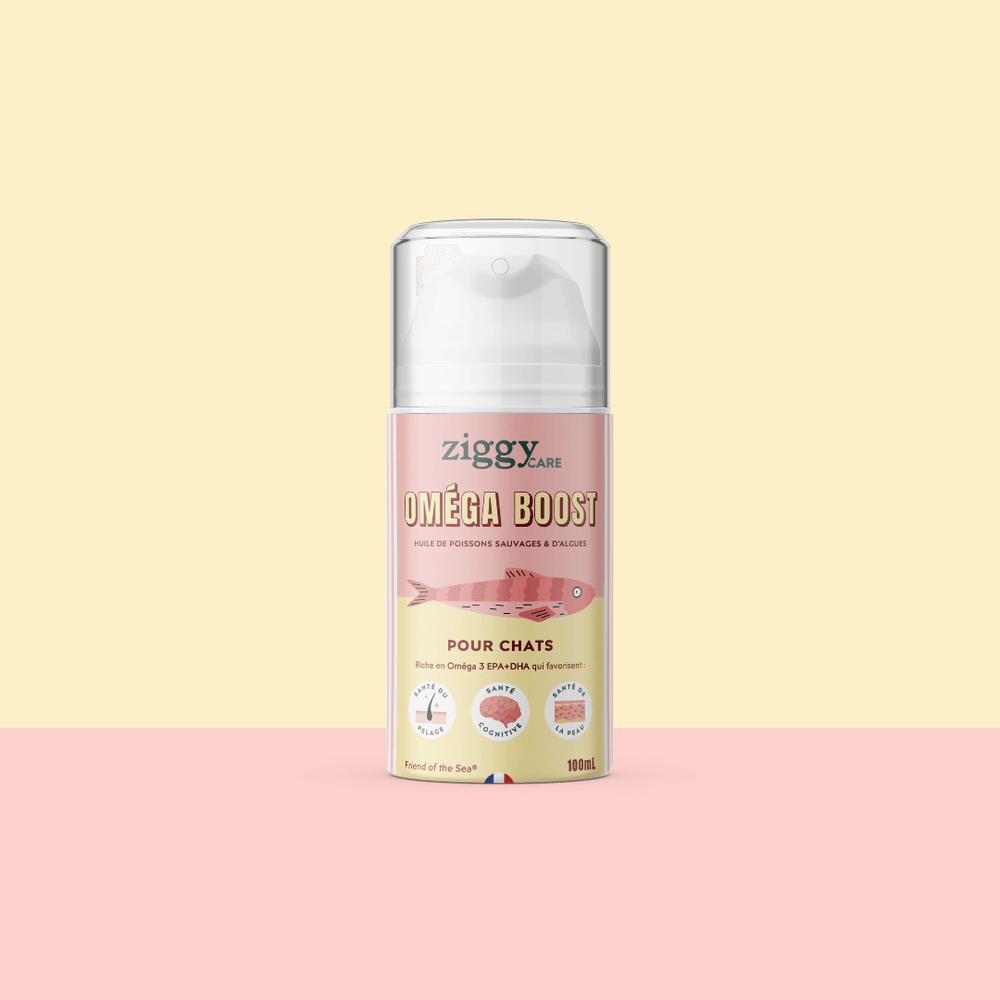
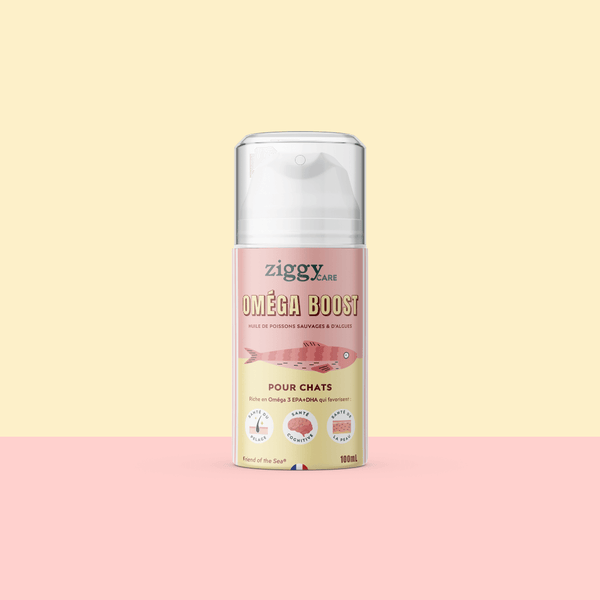
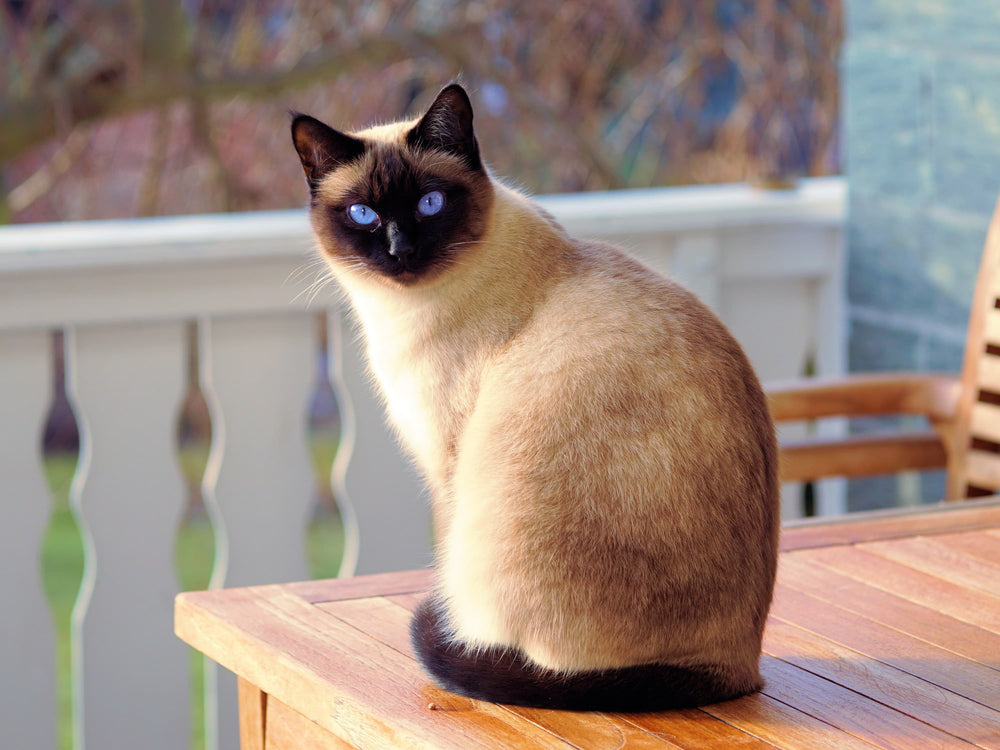
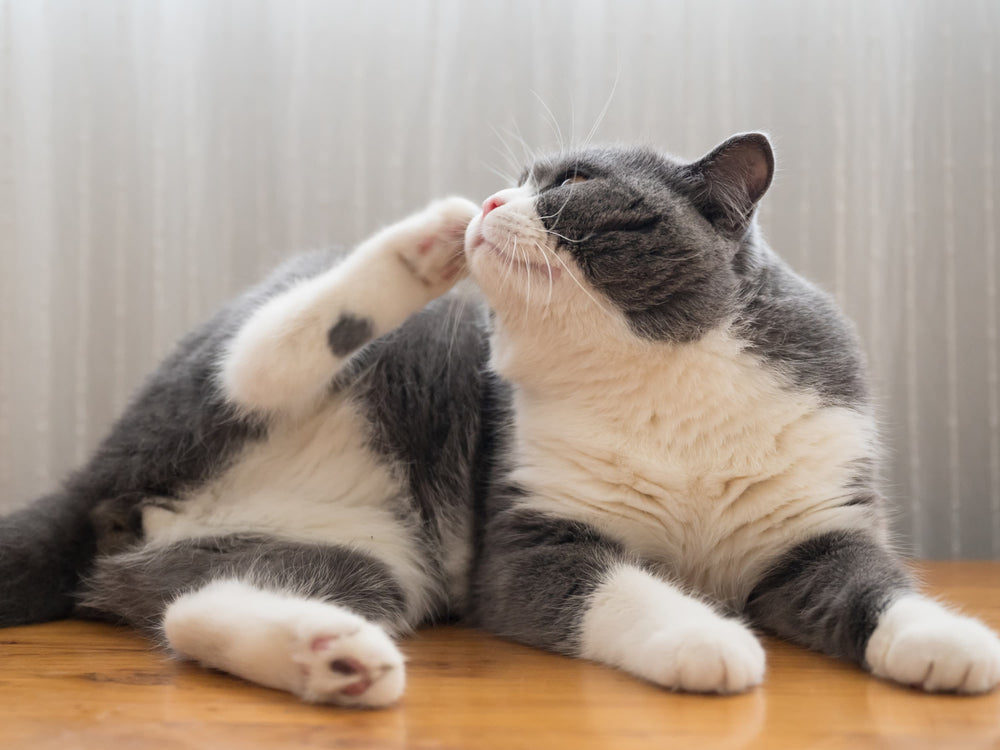

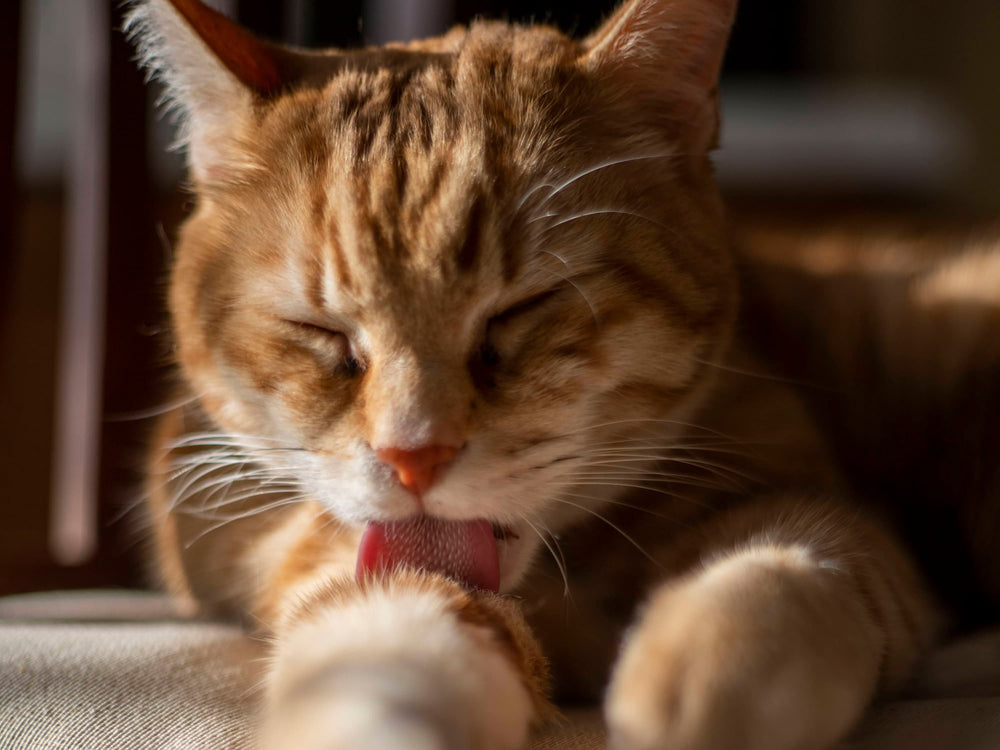
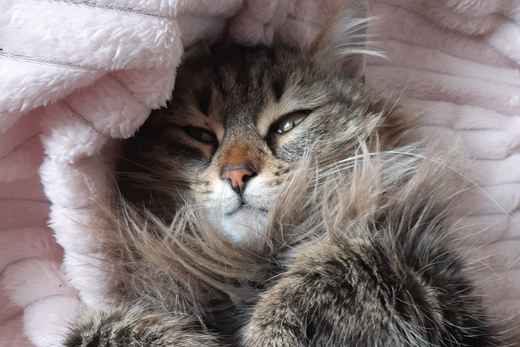


Leave a comment